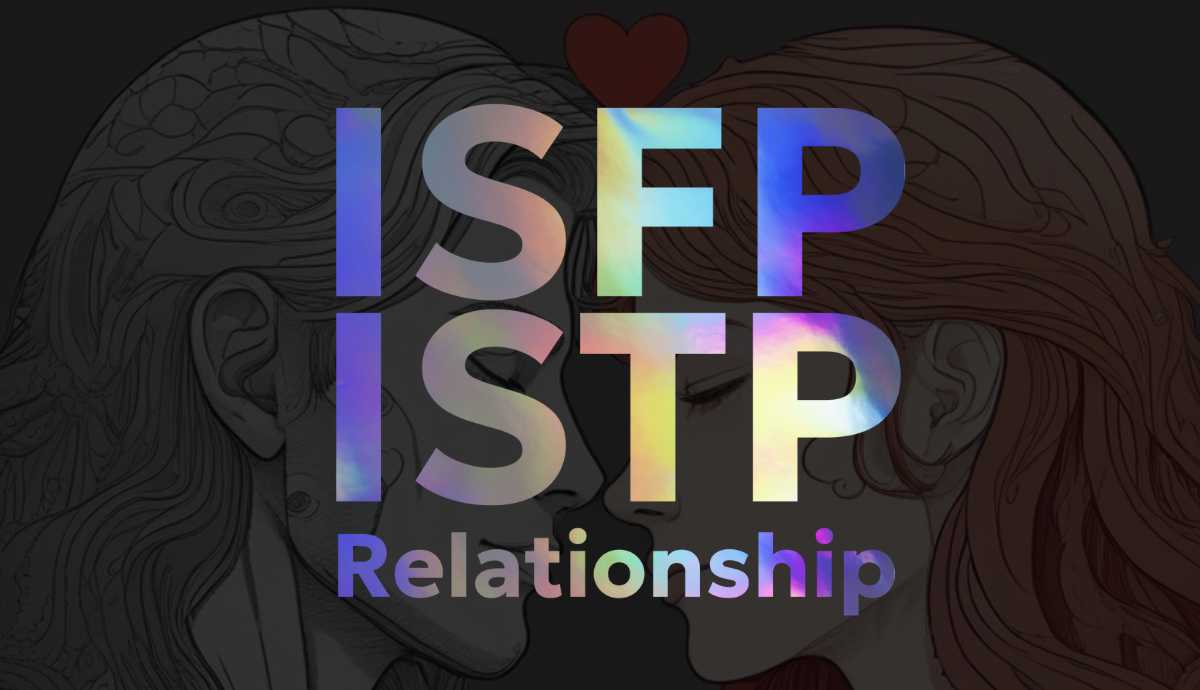In the Myers-Briggs, extraverted feeling is a cognitive function described as having a focus on harmony, communication and connection with other people. Only 8 of the 16 MBTI types have Fe in their main 4-function stack. The others have it as a shadow function. Here is a look at how extroverted feeling is manifested and utilized by each MBTI personality type.
ESFJ & ENFJ – Dominant Fe
With Extraverted Feeling as their dominant function, ESFJ and ENFJ both focus most of their time and energy engaging with people and managing their relationships and connections. They are friendly and eager to help because they want to be a valuable contributor.
They prioritize the maintenance of harmony and positive relations with people and so ESFJ and ENFJ are reluctant to pick sides or take a hard stance on any issue that might alienate people. They are big communicators who enjoy conversing and expressing themselves. They are also nurturers who take it upon themselves to administer what they feel is needed for the people around them and their best interests.
INFJ & ISFJ – Auxiliary Fe
Auxiliary Fe is found in INFJ and ISFJ. Their form of extraverted feeling is less intense and applied in a way that is more apparent in their personal relationships. Although they are introverted, they can appear more social than other introverts since they do enjoy connecting with people albeit to a limited extent. They tend to shy away from the spotlight, but enjoy functioning in a low-key supportive role that provides value to others.
INFJ and ISFJ Fe manifests as thoughtfulness and conscientiousness for other people’s needs and trying to accommodate them whenever they can. These two types are interested in people, and are very kind and compassionate by nature. But where INFJ’s Fe is more interested in understanding things such as people’s motivations and perspectives, ISFJ’s Fe is more interested in details about their lives and activities.
ENTP & ESTP – Tertiary Fe
For ENTP and ESTP, extraverted feeling is something they fall back on when their dominant preference is discomfited or runs into a brick wall. Tertiary Fe reminds ENTP and ESTP to play nice, use diplomacy and try to be helpful to others. It also manifests as a low key urge to seek acceptance and validation from others and also positive recognition. They are both able to sense the emotions and motivations of others to some extent and can sometimes use this to their advantage.
They have the capacity to engage in mind games, playing people against one another, exploiting their emotional weaknesses or just trolling them in general. They have an underlying desire to be a part of something and to form a coterie of like-minded people around them. ENTP and ESTP do not want to be left out of the loop and want to be a relevant voice in the public sphere. Gaining prestige and social currency in the world through their ventures and exploits can provide a sense of validation and acceptance they inwardly desire.
INTP & ISTP – Inferior Fe
INTP and ISTP are both stunted in their use of extraverted feeling and consequently, their inferior Fe may manifest in unhealthy and awkward ways. Inferior Fe initially makes users reluctant to express their feelings and instead repress most of their emotions because they do not trust or understand how to deal with them. Their dominant Ti is antagonistic towards Fe behaviors such as paying attention to and understanding people’s feelings and interacting with people in general.
Their overall perception of Fe-doms may be that they lack authentic principles and respect for objective truth. At the same time, INTP and ISTP may sometimes lament their struggles with Fe, and may find themselves attracted to people who use it well. Because of this, they may have a love/hate relationship with extraverted feeling that creates some internal strife but with some effort they can develop their use of Fe to make themselves more personable and engaging with others.
INFP & ISFP – Opposing Fe
For INFP and ISFP, extraverted feeling appears as their 5th function and part of their shadow. For these two types, Fe may be used only in a narrow or specific context typically when it serves the interests of their dominant introverted feeling (Fi). In other situations, they may find themselves at odds with strong Fe users who push group values or policies that vitiate the sense of individualism deeply valued by INFP and ISFP.
INFP and ISFP may express stubbornness and refusal to follow the script that is expected of them. They may instead try to break away from such expectations because they don’t want to feel boxed in and also want to be true to their personal values rather than surrender themselves to the homogenizing auspices of a group or organization.
ENFP & ESFP – Critical Parent Fe
For ENFP and ESFP, extraverted feeling may emerge in a critical, fault-finding and somewhat demoralizing form. Fe is likely to manifest in the way they judge others and feel judged by others. They may sometimes question their worthiness of being loved and accepted by others and can really get down on themselves. ENFP and ESFP have a disdain for phoniness and inauthenticity, something they may perceive in many Fe users.
Yet sometimes, they themselves may be guilty of being smarmy and ingratiating to people’s faces while criticizing them behind their backs. The Fi in both types may appear weaker than their Fe at times due to their extraversion and strong desire to get on well with other people- sometimes to a self-sacrificing extent. They may at times opt to tell people what they want to hear rather than what they really feel. ENFPs and ESFPs may also display their Fe in the form of guilt-tripping both themselves and others.
ISTJ & INTJ – Deceiver Fe
In ISTJ and INTJ, Fe is their 7th function. For them, extraverted feeling is something they may feel they need to pay attention to or utilize for whatever reason but their use of it is often misguided, and clumsy. The 7th function is associated with self deception and delusional thinking.
When INTJ and ISTJ try to use extraverted feeling, they are prone to misreading people’s emotional cues and motivations. They may form a false belief in their ability to understand people emotionally and how best to respond to their needs. Because of this, the 7th function is said to often serve as a source of comic relief creating laughable situations stemming from a user’s awkward application of it.
ENTJ & ESTJ – Demonic Fe
For ENTJ and ESTJ, extraverted feeling is their 8th function. Their use of Fe can be destructive and lead to actions that are later regretted. On the other hand, their Fe may be utilized dispassionately and strategically for pragmatic purposes such as effective management of personnel. Despite the skill with which ENTJ and ESTJ can utilize the veneer of extraverted feeling, their primary concern is with their objectives and not people.
They may use people like pawns on a chessboard, pulling the right strings and pushing the right buttons to get the response they need. Does this make them disingenuous or manipulative? Sometimes, but they are simply trying to use the psychological tools available to them for dealing with humans effectively to accomplish their ends.
related posts:
Want to know your astrology placements? You can generate your astrology chart here with our free birth chart generator tool.
- Emotional Triggers of Each MBTI Type
- The Moral Compass of Each MBTI Type
- How Each MBTI Type Processes Emotions
- What Each MBTI Type Seeks In A Soulmate
- The Fatal Flaw of Each MBTI Type In Relationships
- How Each MBTI Type Responds To Criticism
- American Presidents Ranked By Zodiac Sign - January 20, 2025
- ESTP and ESFP in love: 6 Dynamics of Their Relationship - September 4, 2024
- ISFP and ISTP in love: 5 Dynamics of their Relationship. - August 28, 2024





